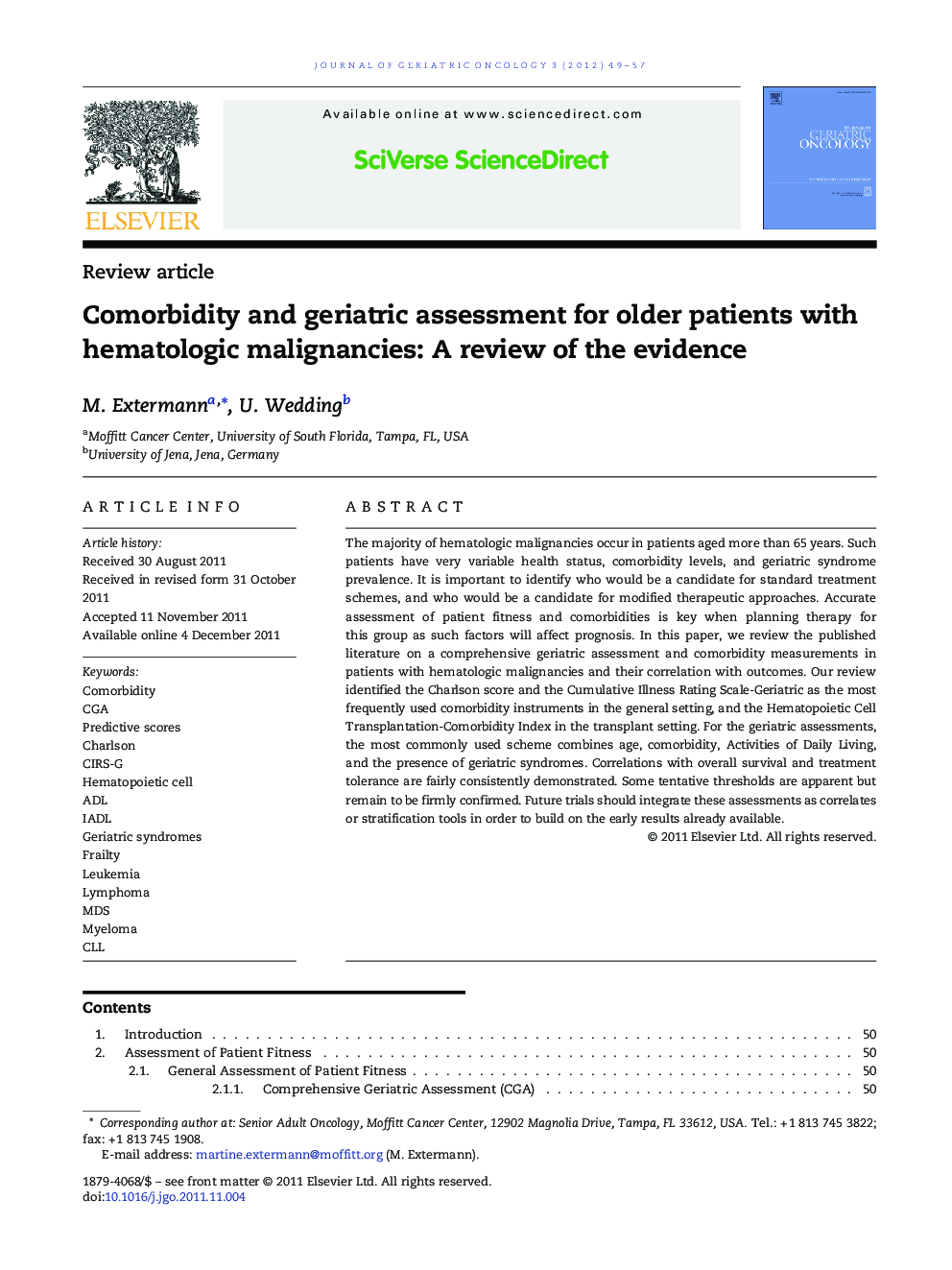| Article ID | Journal | Published Year | Pages | File Type |
|---|---|---|---|---|
| 1912659 | Journal of Geriatric Oncology | 2012 | 9 Pages |
The majority of hematologic malignancies occur in patients aged more than 65 years. Such patients have very variable health status, comorbidity levels, and geriatric syndrome prevalence. It is important to identify who would be a candidate for standard treatment schemes, and who would be a candidate for modified therapeutic approaches. Accurate assessment of patient fitness and comorbidities is key when planning therapy for this group as such factors will affect prognosis. In this paper, we review the published literature on a comprehensive geriatric assessment and comorbidity measurements in patients with hematologic malignancies and their correlation with outcomes. Our review identified the Charlson score and the Cumulative Illness Rating Scale-Geriatric as the most frequently used comorbidity instruments in the general setting, and the Hematopoietic Cell Transplantation-Comorbidity Index in the transplant setting. For the geriatric assessments, the most commonly used scheme combines age, comorbidity, Activities of Daily Living, and the presence of geriatric syndromes. Correlations with overall survival and treatment tolerance are fairly consistently demonstrated. Some tentative thresholds are apparent but remain to be firmly confirmed. Future trials should integrate these assessments as correlates or stratification tools in order to build on the early results already available.
